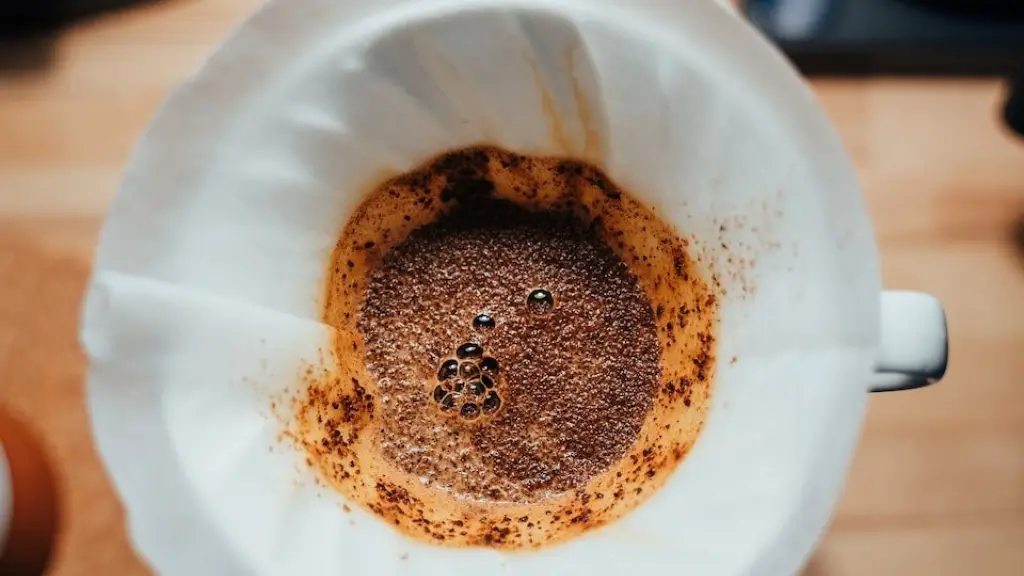Coffee seems to give some of us a daily boost and many of us rely on it to start our day. But recent research suggests that drinking significant amounts of coffee can have an unintended consequence – it can affect the menstrual cycle of women. In this article, we’ll explore how caffeine consumption may affect the cycle, look at the evidence, and assess the impact of coffee.
One Cup? Two Cups? Ten Cups?
A study conducted by the Harvard T.H. Chan School of Public Health in 2019 took a look at the long-term effects of caffeine consumption on women’s menstrual cycles. The study observed over 21,000 pre-menopausal women who had not taken hormones or oral contraceptives for at least 3 months prior to the start of the study. After keeping track of their coffee consumption patterns and the number of menstrual cycles they experienced over the course of eight years, the researchers found that women who consumed more than three cups of coffee per day were more likely to experience irregular menstrual cycles.
The study also revealed that the amount of caffeine you consume may actually be more important than the type of beverage. Women who drank more than three cups of coffee a day were twice as likely to experience an irregular menstrual cycle compared to those who drank two or fewer cups.
Scientific Evidence
The Harvard study isn’t the first to investigate the effects of caffeine consumption on women’s menstrual cycles. Another study published in 2016 by the International Journal of Gynecology & Obstetrics looked at the effects of caffeine consumption on women with premenstrual syndrome (PMS). The researchers surveyed 1,986 Danish women over the course of 5 years and found that those who consumed more than 500mg of caffeine per day (the equivalent of five cups of coffee) were significantly more likely to experience PMS.
As for why caffeine can have an effect on the menstrual cycle, some researchers believe it is due to its ability to interfere with hormones. Caffeine can affect the balance of hormones in the body, irritating and disrupting the regular menstrual cycle. It appears that the more caffeine a person consumes, the more significant the effect on their hormones, and thus, their menstrual cycle.
Options To Consider
Of course, not everyone who consumes coffee experiences menstrual cycle irregularities. If it is something you are concerned about, health experts recommend limiting your caffeine intake to no more than three cups a day. Additionally, there are a few options you can consider if you want to cut back on caffeine, such as switching to decaffeinated coffee, tea, or other beverages. You can also opt for coffee with lower caffeine content, such as cold brew coffee or espresso drinks.
One other option to consider is using supplements or nutraceuticals. For example, coffee acidity balancers can be taken to help reduce the impact of caffeine on the body, and there are a number of herbal and nutritional supplements designed specifically to help support menstrual health.
Coffee and Fertility
It is important to note that caffeine can also have an effect on fertility. Studies have shown that women who consume more than 500mg of caffeine per day are more likely to experience irregular menstrual cycles, and this can also have an impact on fertility. Women who have difficulty getting pregnant are generally advised to cut back on caffeine as it can significantly reduce their chances of getting pregnant.
If you are trying to get pregnant, or if you have problems with menstrual regularity, cutting back on caffeine may be an option for you. Even if you are not trying to get pregnant, reducing your caffeine intake may help lessen any disruption to your menstrual cycle and reduce the number of irregular cycles.
The Bottom Line
It is clear that drinking coffee can have an effect on your menstrual cycle. While the research is still in its early stages, it appears that the amount of caffeine consumed is the most important factor. The more caffeine you consume, the greater the impact on your menstrual cycle, and the more likely you are to experience irregular cycles.
If you are concerned about the impact of caffeine on your menstrual cycle, one option is to limit your consumption to no more than three cups of coffee per day. Alternatively, you can opt for decaffeinated coffee or tea. You can also try using supplements or nutraceuticals to help reduce the impact of caffeine on your body. Ultimately, it is important to make sure you are making informed decisions about what to eat and drink and to consult with your healthcare provider if you need further advice.
Medical Conditions
Though the effects of caffeine on the menstrual cycle may not be a cause for alarm for many women, it can be a concern for women with certain medical conditions. Women with polycystic ovary syndrome or other medical conditions that can cause irregular menstrual cycles may need to watch their caffeine consumption more closely as it can make symptoms worse.
Because of this, it is important to talk to your healthcare provider before making any changes to your diet or caffeine consumption. They can help you determine the best course of action based on your individual medical history and lifestyle.
Additional Research and Studies
As with many aspects of nutrition, there is still much to be studied and investigated when it comes to the effects of caffeine on the menstrual cycle. Further research is needed to better understand the nuances and long-term impacts.
That said, one thing is clear – there is evidence that link caffeine consumption to an irregular menstrual cycle. Women concerned about their menstrual cycle should discuss with their healthcare provider and consider cutting back on their caffeine intake or switching to decaffeinated coffee or other beverages.
Caffeine and Sleep
Though caffeine can help boost energy levels, it may also have a detrimental effect on sleep. Caffeine is a stimulant, and consuming too much may interfere with one’s ability to get a good night’s sleep. Lack of sleep can have a negative impact on many aspects of health, and it can also exacerbate other health issues such as menstrual cycle irregularity.
For those who rely on caffeine to get through their days, it may be beneficial to switch to decaffeinated beverages in the afternoon and evening. Or, if you are particularly sensitive to caffeine, reducing consumption during the day may help you get better quality sleep at night.
Coffee and Mental Health
In addition to its effects on physical health, studies have shown that caffeine consumption can have an effect on mental health as well. Research has linked excessive caffeine consumption to an increased risk of depression and anxiety, and it is important to be mindful of this when considering your caffeine intake. If you find that your caffeine consumption is affecting your mood, it may be beneficial to reduce or eliminate caffeine from your diet.
That being said, for many people, caffeine can be a helpful pick-me-up. Caffeine has been found to have positive effects on alertness, concentration, and overall performance. Moderation is key, however, and if you find that your caffeine consumption is impacting your menstrual cycle or mental health, it may be wise to make some adjustments.
Lifestyle changes
Finally, it is important to note that caffeine consumption is just one factor that may contribute to irregular menstrual cycles. Stress, diet, exercise, and other lifestyle habits can also have an effect, and it is important to consider these as well. Addressing any underlying physical issues, such as chronic health conditions or hormonal imbalances, may also help reduce the impact of caffeine on your menstrual cycle.
Making small changes to your lifestyle, such as decreasing stress levels, improving your diet, and exercising regularly, may help improve the regularity of your menstrual cycle and reduce the effects of caffeine. Additionally, drinking plenty of water and making sure to get enough rest can also help support overall menstrual health.





